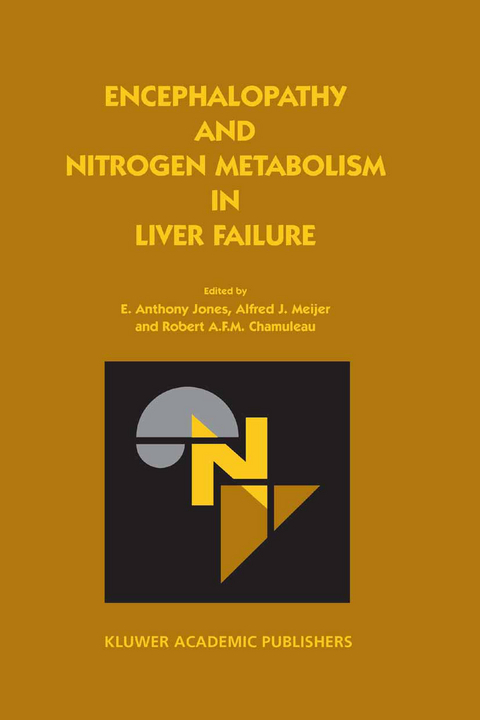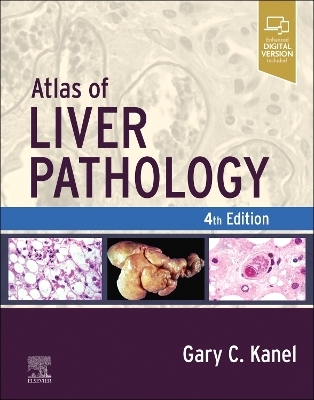
Encephalopathy and Nitrogen Metabolism in Liver Failure
Springer-Verlag New York Inc.
978-1-4020-1157-3 (ISBN)
1. Nitrogen metabolism in relation to liver disease.- 1. Novel aspects of nitrogen metabolism in liver disease.- 2. The interorgan exchange of amino acids and ammonia and the effect of plasmapheresis in acute liver failure.- 3. Metabolic consequences of an upper gastro-intestinal bleed in patients with cirrhosis.- 4. Citrin deficiency.- 2. Assessment of overt and minimal hepatic encephalopathy.- 5. Assessment of hepatic encephalopathy.- 6. Evaluation of mental state in a clinical trial of MARS for patients with acute hepatic encephalopathy: comparison of two scales.- 7. Relationship between minimal hepatic encephalopathy and extrapyramidal signs in cirrhotic patients.- 8. Evaluation of visual focus in cirrhotic patients.- 9. Detection of minimal hepatic encephalopathy: EEG spectral analysis vs. cognitive evoked potentials.- 10. Analysis of critical flicker frequency threshold in hepatic encephalopathy: dynamics and cortical activations.- 11. Cortical origin of mini-asterixis in hepatic encephalopathy.- 12. Imaging studies in hepatic encephalopathy.- 13. Subclinical and overt hepatic encephalopathy — detection and treatment control by proton magnetic resonance spectroscopy (1H-MRS).- 3. Animal models of acute liver failure.- 14. Long-term observations on rats with thioacetamide-induced hepatic failure.- 15. Reversal of Fischer’s ratio in an anesthetised porcine model of acute liver failure.- 4. Neuropsychiatric dysfunction in chronic liver disease.- 16. Experience with neuropsychiatrie complications of interferon-based therapy for chronic viral hepatitis.- 17. Cognitive effects of long-term interferon treatment for chronic viral hepatitis.- 18. Is fatigue of cholestasis mediated by altered central serotoninergic neurotransmission?.- 19. Reduced pallidal magnetisationtransfer ratios are associated with fatigue in pre-cirrhotic patients with primary biliary cirrhosis.- 5. Pathophysiology of hepatic encephalopathy.- 20. Pathogenesis of hepatic encephalopathy.- 21. Effect of blood plasma components from patients with hepatic encephalopathy on electrophysiological activity of primary frontal cortex networks in vitro.- 22. Hyperammonemia and liver failure alter signal transduction associated with glutamate receptors and modulation of guanylate cyclase by nitric oxide.- 23. Increased cerebral and peripheral vasodilation, and whole body nitric oxide production after insertion of a transjugular intrahepatic portal-systemic stent in patients with cirrhosis.- 24. Concomitant changes in melatonin metabolism and in hypothalamic histamine in rats with a portacaval anastomosis.- 25. Brain energy metabolism in acute liver failure: studies using NMR spectroscopy.- 26. Brain diffusion weighted MRI in cirrhosis.- 27. Role of manganese in hepatic encephalopathy.- 6. Astrocytes and hepatic encephalopathy.- 28. The mitochondrial permeability transition in ammonia neurotoxicity.- 29. Astroglial protein tyrosine nitration by ammonia.- 30. Use of NMR spectroscopy for the study of ammonia metabolism in astrocytes and neurons: role of glutamine synthesis in astrocytes.- 7. Acute liver failure.- 31. Brain uptake of ammonia in fulminant hepatic failure: the role of cerebral blood flow.- 32. Effect of erythropoietin on intracranial pressure and brain water in rats with hyperammonemia.- 33. Prevention of brain edema in acute liver failure by hypothermia: recent advances.- 8. Treatment of hepatic encephalopathy.- 34. Treatment of hepatic encephalopathy.- 35. Rifaximin reduces EEG relative beta power in patients with minimal hepatic encephalopathy: preliminary findings.- 36. Naloxone treatment of human hepatic encephalopathy.- 9. Artificial liver support and hypothermia in liver failure.- 37. Liver support systems: issues and challenges.- 38. Clinical application of bioartificial liver support systems.- 39. Molecular Adsorbents Recirculating System (MARS) for acute decompensation of chronic liver disease: an early clinical experience.- 40. Hypothermia for the management of intracranial hypertension in acute liver failure.- 10. The future.- 41. The potential of molecular biological techniques in research on hepatic encephalopathy.
| Erscheint lt. Verlag | 31.5.2003 |
|---|---|
| Zusatzinfo | XI, 437 p. |
| Verlagsort | New York, NY |
| Sprache | englisch |
| Maße | 155 x 235 mm |
| Themenwelt | Medizinische Fachgebiete ► Innere Medizin ► Hepatologie |
| ISBN-10 | 1-4020-1157-1 / 1402011571 |
| ISBN-13 | 978-1-4020-1157-3 / 9781402011573 |
| Zustand | Neuware |
| Haben Sie eine Frage zum Produkt? |
aus dem Bereich


